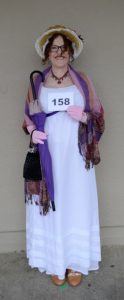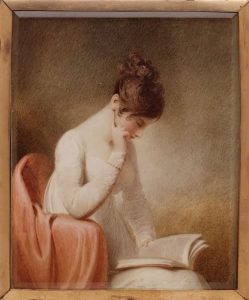Who taught me the best writing lessons, hard indeed at first, but most advantageous?
First, I have to ask: where do you as an author learn to become a better writer? Like most others, I try to read to find ways to improve. I find it easier to read short articles or blog posts than a book. The books recommended to me are written by well-known authors, and the writing advice I’ve heard quoted from them seems a bit fishy, so I don’t trust that their book is going to be helpful. In fact, many sound like marketing and vanity tools.
The best lessons for me personally came from other individuals, including other writers, beta editors, and my Meryton Press editing team. I think the best talent to help a writer grow and excel is a willingness to listen and change, even if it’s hard at first.
Learning from other writers by extensive reading goes back to Lesson #1: As an author, your goal is to provide a reading experience with the greatest level of satisfaction that is within your control. I evaluate the pluses and minuses of other books and try to improve my own work based on that reading experience. I also act as a beta editor for other authors, which is a great way to learn, as I have to look up items such as in Lesson #5: If in doubt, look it up.
A not-so-secret technique is to have several friends review my chapters as I write.
Beta readers help keep me on track by critiquing all aspects of the story. I’ve learned a lot of techniques to help me grow as a writer from listening to these cherished advisors, who are generally writers and readers in the author’s genre.
Usually by the time I’ve finished incorporating their suggestions, the plot flows well, the style is consistent, no glaring continuity problems remain, anachronisms (errors in history and language in a non-modern novel) are corrected, the characterization is consistent and will please readers, good habits are employed with the storyteller’s point of view, the spelling is error-free, most of the punctuation follows rules we as well educated persons can agree upon, and so on. Different authors have different weak spots, and a trusted beta can help from brainstorming prior to writing to final cold reading for typos and everything in between.
 Suzan Lauder’s Learn from My Mistakes Lesson #6: Beta readers can help an author at all points in the writing process.
Suzan Lauder’s Learn from My Mistakes Lesson #6: Beta readers can help an author at all points in the writing process.
They’re also free help, and with love and respect for the huge leaps and bounds my betas have taken my stories through, I must stress that, unless the story is not all that complex, problems will remain within the novel that none of us have experienced before.
 That’s why I need professional editors for my work, and I strongly encourage all authors to consider this valuable resource. That impoverished journalism student, the English major who offered to help, a teacher you know, or your sweet Aunt Sally may be free or almost free help, but they’re not necessarily aware of all the details of proper copy editing and proofreading for a novel, which has rules and conventions of its own, never mind how to fit them into the layout for an e-book or print book.
That’s why I need professional editors for my work, and I strongly encourage all authors to consider this valuable resource. That impoverished journalism student, the English major who offered to help, a teacher you know, or your sweet Aunt Sally may be free or almost free help, but they’re not necessarily aware of all the details of proper copy editing and proofreading for a novel, which has rules and conventions of its own, never mind how to fit them into the layout for an e-book or print book.
My viewpoint on this is strengthened by experience reading novels written or edited by teachers and English majors that contained numerous simple errors like we discussed in our “Lesson 5” last post, never mind editing conventions they had no clue about! I read a novel by a professional editor who should have hired a professional editor. We just don’t see our own mistakes, and amateur editors don’t recognize them.
Another important issue is that writers must listen to their editors and not disregard their good advice. There’s no use in getting good advice if you sell a book full of problems that you could have avoided, but your vanity wouldn’t let you modify. Amazon readers like to attack those problem areas, and a disclaimer is insulting to both you and your editor.
 Suzan Lauder’s Learn from My Mistakes Lesson #7: Every author listens to and incorporates the advice of one or more professional editors who know the conventions specific to their style, content, sub-genre, etc. There are no exceptions.
Suzan Lauder’s Learn from My Mistakes Lesson #7: Every author listens to and incorporates the advice of one or more professional editors who know the conventions specific to their style, content, sub-genre, etc. There are no exceptions.
My sympathy goes out to those who have hired poor quality editors. As in any job situation, impartial references and entrance exams are important. Most editors will give you a few free pages to see if they are a “fit.” Also, read a published book they’ve edited.
Next post: some examples of when I had to suck it up and listen to my editor.
Disclaimer: I’m not a writing expert. I’m just a writer who learned some stuff other writers might like to know instead of learning the hard way. My approach is pragmatic, and my posts are not professionally edited!
Save
Save
Save




